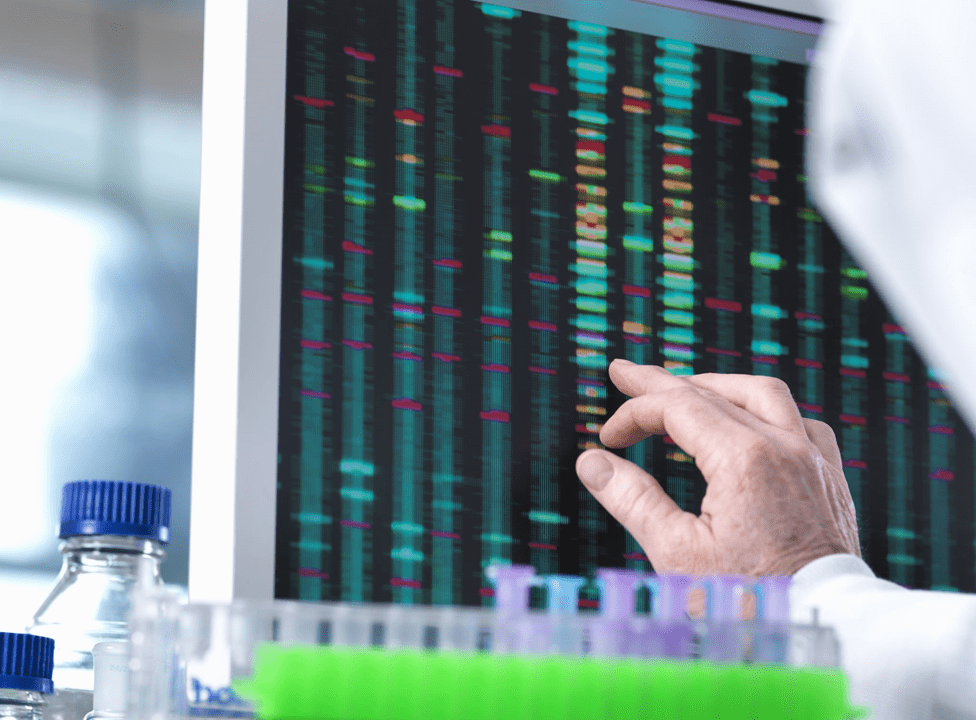Catalog to develop Worlds First DNA Computer raises $35 million. Catalog, a startup based in Boston, Massachusetts that claims to be developing the Worlds First DNA Computer, revealed today that it has raised $35 million in a series B fundraising round headed by Hanwha Impact Partners. This money will help to accelerate the development of a computing platform that uses synthetic DNA for both data management and processing. Catalog in a blog post said it will be using the funds to help create an ecosystem of collaborators, partners, and users of DNA-based computing. Hanwha is leading a round to accelerate the delivery of the first chemical-based computation systems for complex queries and novel computation in industries such as finance, manufacturing, and research.
They plan to have active involvement in the DNA Storage Alliance to aid in the growth of the industry and the establishment of standards for DNA storage and, eventually, computation. Interest in chemical-based DNA computing systems has grown as discussions about the energy consumption required by traditional computing to process massive amounts of data and the insecurity of electronic data continue. These new systems provide “air-gapped” security, are impervious to typical electrical security flaws, have a small physical footprint, and use very little if any, energy for data storage and manipulation.
As the amount of data generated around the world continues to grow at a rapid pace, researchers are looking for ultra-dense, ultra-durable storage solutions that can accommodate it all. One novel storage media, deoxyribonucleic acid, or DNA, appears to contain all of the necessary characteristics. A single gram of DNA can store 215 PB (220,000 TB) of data, according to researchers.
[email-subscribers-form id=”1″]

Over the last few years, the IT sector has seen a growth of purpose-built technology, such as accelerators (GPUs, FPGAs, and others), quantum computers, and extreme parallel computers. The introduction of the DNA-based computer adds to this portfolio by emphasizing low-energy, spatially dense, and secure computing that is not constrained by the realities and constraints of electronic systems.
The method of encoding and decoding binary data to and from manufactured strands of DNA (deoxyribonucleic acid) is known as DNA digital data storage. While DNA has immense potential as a storage media due to its high storage density, its practical application is currently limited due to its high cost and lengthy read and write times.
In June 2019, scientists announced that they had encoded all 16 GB of text from Wikipedia’s English-language version onto synthetic DNA.
“Simply preserving data in DNA is not our end goal,” said Hyunjun Park, founding CEO of CATALOG. “CATALOG will fundamentally change the economics of data by enabling enterprises to analyze and generate business value securely from data that previously would have been thrown away or archived in cold storage. The possibility of a highly scalable, low energy, and potentially portable DNA computing platform is within our reach.”
CATALOG Scaling Synthetic DNA for Enterprise
Shannon, CATALOG’s first DNA writer, was called after Claude Shannon, the pioneer of information theory. Hundreds of thousands of chemical reactions per second are possible. In addition to storage, future generations of CATALOG’s automated DNA-based data platform will provide computational capabilities. This will be the first enterprise-ready, commercially viable DNA storage and computation technology.
“CATALOG is a leading developer of DNA-based storage,” said Dr. Earl Joseph, chief executive officer, Hyperion Research. Their automation and scaling are designed to bring this new technology to market in products that commercial enterprises can easily use. In addition, they are the first vendor we know of that is developing a scalable DNA platform for computation.”
“CATALOG’s technology represents a viable pathway to solve the issue of not only mass data accumulation and preservation but more importantly, the effective usage of data,” said Nick Ha, Vice President, Hanwha Impact Partners. “Most industries produce large amounts of data which become wasted because of the lack of an efficient way to preserve and analyze the data. We believe CATALOG will become the catalyst for a data revolution across many industries.”
About Catalog:
CATALOG, a company created by MIT scientists in 2016, is the first to develop a commercially feasible DNA-based solution to this problem. CATALOG is using DNA’s intrinsic qualities to create a data and computing platform that is more energy-efficient, scalable, and secure than traditional electronic platforms. Visit www.catalogdna.com for more information on CATALOG.

